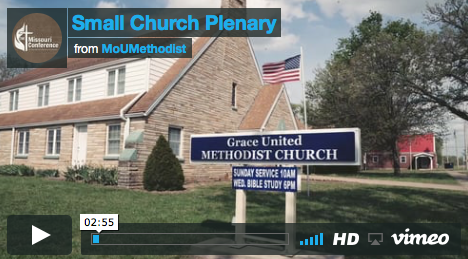Category: Methodist
Small Church Talk by Pastor Kevin and Pastor Jeremy
Kevin and I were able to share a few learnings from our experience planting a satellite campus in rural America. Our first campus is in suburban Lee’s Summit, Missouri. Our second campus is 90 miles away and in El Dorado Springs, Missouri. The El Dorado Springs UMC closed in 2014. We came in the Spring of 2015 and launched a new campus in the fall of 2015. Here is our story.
Ten Reasons Why El Dorado Springs Is Working
Here are the two videos from our presentation- Here are our notes- A) Who We Are 1- Know Our Purpose We Are A Light in the Darkness for the Non-Churched, Once-Churched and Badly Churched When Jesus spoke again to the people, he said, “I am the light of the world. Whoever follows me will never walk in darkness, but will have the light of life.” John 8:12 “You are the light of the world.…
Questions For Ministry
United Methodist Church Missouri Conference Heartland District CERTIFICATION INTERVIEW BY dCOM (¶310.2) Please tell us about the most formative experience in your life as a Christian. Please tell us about God’s call to licensed or ordained ministry and the role of the church in your call. How do you understand the Gospel of Jesus Christ? We each have gifts for ministry. Please tell us what gifts you have exercised and how effective/fruitful they have been.…
Following A “Legend” in Your Organization
Are you following a legend in your organization? Whether it’s church, the office or sports, there will be a time most of us follow a “legend”. Or so we’ve been told that they were a legend. People may receive that moniker for a numbers reasons. Maybe they increased worship attendance, productivity, or won a bunch of championships. Odds are, you are not following a legend. You are following someone who did a solid job, but…



